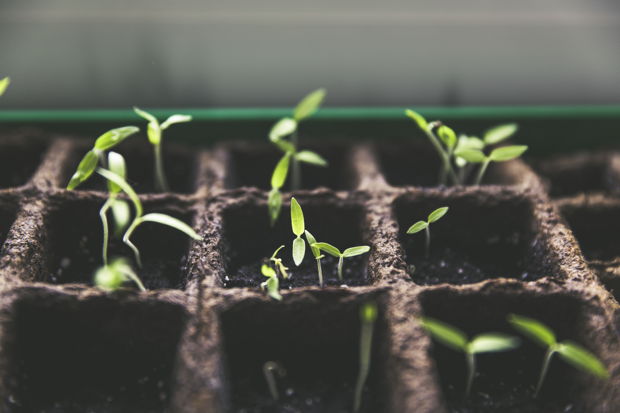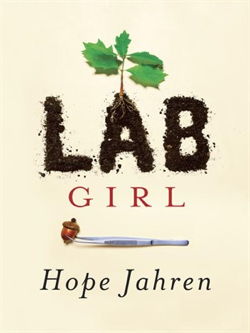
Lab Girl, a poignant memoir of science and academia, tracks Hope Jahren’s journey as a female professor in a male-dominated field. As a female chemist and a relatively new academic on the tenure track, I appreciate Jahren’s raw and honest account of the challenges women face in the sciences and also her contagious excitement for convincing readers, even those who don’t love science, of the fascinating lives of plants.
Jahren is a geobiology professor at the University of Oslo, and she both reveals the struggles of scientific research and asserts the goodness of curiosity-driven science, particularly in a world that increasingly values application-driven research.
As an undergraduate and as a professor at all-women’s colleges, I’ve encountered women who struggle with the “imposter syndrome” — questioning whether they have what it takes to succeed. So it’s helpful that Jahren shares a few instances where she experienced failure and how she responded. During her last year of doctoral work at the University of California, she was responsible for a carbon dioxide explosion in the lab. Right after the incident, Jahren questioned her capability. But with the help of her friend and lab partner Bill, she was able to overcome her doubts and move on to a tenure-track position at Georgia Tech.

Jahren describes two approaches to handling major setbacks in research. The first is to start again the next day after clearing your mind. The second is to “immediately resubmerge, put your head under and dive to the bottom, work an hour longer than you did last night, and stay in the moment of what went wrong.” While the first approach may be good for achieving adequacy, Jahren says that the second “leads to important discoveries.” She calls us to have the courage to address our inadequacies, not in order to dwell on them, but to self-examine, learn, and grow.
Some of my students, particularly women, struggle with how to face poor performance in the classroom. After receiving graded exams, some look at their test scores, wallow in disappointment, and then put them out of sight. But I advise my students to examine their mistakes so that they can fix them before the next exam. This same principle applies in our faith — it is helpful to grow in our self-awareness in order to magnify the Lord’s presence and power in our lives.
Jahren thoughtfully communicates her passion for science in the way she views the world. “A seed knows how to wait,” Jahren writes. The science behind how seeds grow is fascinating — I did not realize that some seeds wait a year before emerging. Waiting is a difficult thing to do; yet God has created waiting as an integral part of nature. We all can be impatient and restless — we are used to instant gratification. We plan last-minute trips and use a GPS to find our way to the next destination instead of planning ahead or navigating with paper maps. And there are major waiting moments in life — waiting for a loved one to heal, for test results to be revealed, for the job offer to come. But waiting has been a necessary and integral part of growing in my faith.
Jahren skillfully draws connections between the real world and the sometimes hard-to-relate world of science. I understand her desire “to help facts ‘stick’ in the mind of students.” I recently stumbled upon a connection like this at a local coffee shop in a chat with the owner. We mistakenly think of coffee beans as mostly responsible for the taste and aroma of coffee, but it turns out that the chemical composition of water (e.g., the hardness level) is also critical to controlling the taste of coffee. I can’t wait to share this with my students in the classroom. I love that God has wired me to be a chemist and to view the world, like Jahren, with scientific curiosity and nerdy excitement.
Lab Girl is radical and inspirational. Jahren boldly gives voice to the concerns of those underrepresented in the sciences, including women and career researchers like her lab partner Bill. She also vulnerably describes her discovery of her profession and its impact on her personal life, exploring her relationship with her parents, her long-standing friendship with Bill, and her growth as a mother. Her experiences are relatable and valuable as I pursue my own journey toward tenure. I highly recommend this book for students interested in pursuing an academic career in the sciences, for young faculty making their way in academia, and for anyone interested in the twists and turns of a life lived with passion and curiosity.